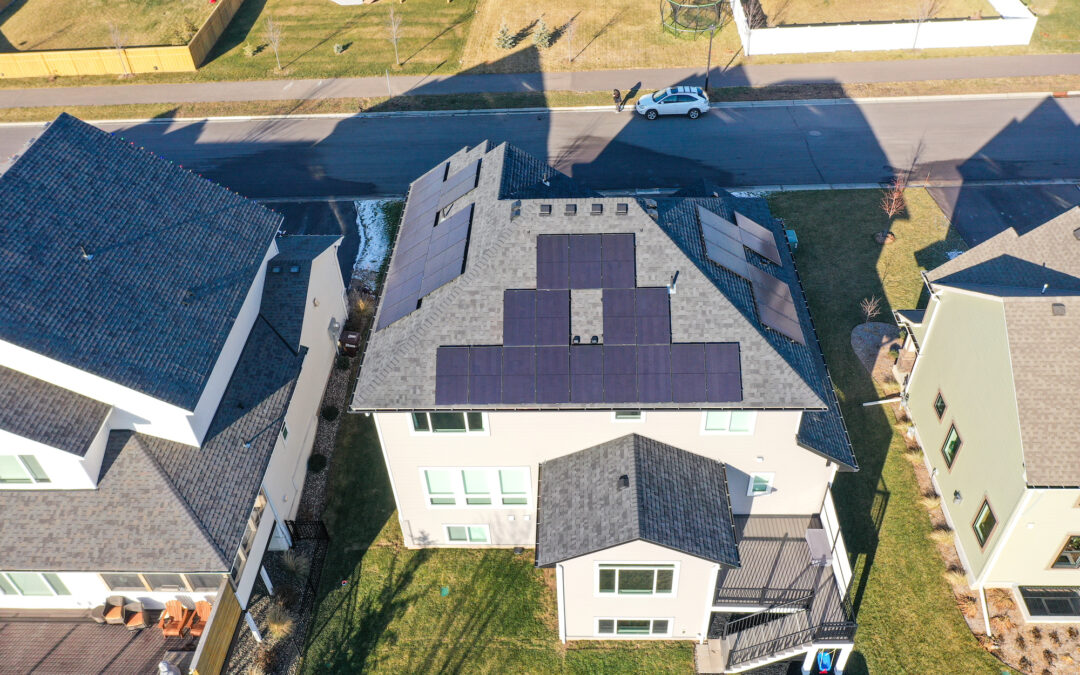Home solar panel installations have become increasingly popular as homeowners seek to reduce their carbon footprint, lower energy bills, and gain energy independence. If you’re considering investing in a residential solar panel system, understanding the installation process can help you prepare for what to expect. In this article, we’ll walk you through each step of the residential solar installation process, from initial consultation to flipping the switch on your solar power system.
Why Choose Solar?
There are numerous reasons why homeowners are turning to solar energy to power their homes. Here are some compelling reasons to choose solar:
- Financial Savings: One of the primary motivations for going solar is the potential for significant cost savings on electricity bills. By generating your own electricity from the sun, you can reduce or even eliminate your dependence on grid electricity, resulting in lower monthly energy bills.
- Energy Independence: Solar power provides homeowners with greater energy independence by generating electricity on-site. This means you’re less reliant on traditional utility companies and are better equipped to withstand power outages or fluctuations in energy prices.
- Environmental Benefits: Solar energy is a clean and renewable energy source that produces zero emissions during operation. By harnessing the power of the sun, homeowners can significantly reduce their carbon footprint and contribute to environmental conservation efforts.
- Increased Home Value: Installing solar panels can increase the value of your home. Studies have shown that homes equipped with solar panels tend to sell faster and at a higher price than non-solar homes, making solar a smart investment for homeowners.
- Government Incentives: There are several government incentives available to homeowners who choose to install solar panels, including the Federal Investment Tax Credit (ITC) and various state and local rebates and incentives. These incentives can help offset the upfront cost of installing a solar panel system.
With these compelling benefits in mind, let’s take a closer look at the steps involved in the residential solar installation process.
Initial Consultation
The first step in the residential solar installation process is the initial consultation with a solar energy company. During this meeting, a solar consultant will visit your home to assess its suitability for solar panels. They will evaluate factors such as roof orientation, shading, and available space to determine the optimal solar panel system size and configuration for your home.
Site Assessment
Following the initial consultation, the solar energy company will conduct a detailed site assessment to gather additional information needed for system design and engineering. This assessment may involve taking measurements, evaluating roof condition, and assessing electrical infrastructure to ensure compatibility with the solar panel system.
System Design
Once the site assessment is complete, the solar energy company will design a custom solar panel system tailored to your home’s specific energy needs and site conditions. This design phase may include selecting the appropriate solar panels, inverters, mounting hardware, and other components necessary for the installation.
Permitting and Paperwork
Before installing solar panels on your home, the solar energy company will obtain the necessary permits and approvals from local authorities. This process involves submitting permit applications, engineering drawings, and other documentation required to comply with building codes and regulations.
Installation
With permits in hand, the installation phase can begin. A team of trained solar installers will arrive at your home to install the solar panel system according to the design specifications. This typically involves mounting the solar panels on your roof or ground-mounted racking system, wiring the panels together, and connecting them to the electrical panel.
Inspection and Interconnection
After the solar panels are installed, a final inspection will be conducted by local building inspectors to ensure compliance with safety and electrical codes. Once the inspection is passed, the solar energy company will work with your utility provider to facilitate the interconnection process, allowing your solar panel system to start generating electricity. This can take anywhere from a few weeks to a few months, depending on your utility company.
System Activation
Once the solar panel system is interconnected with the utility grid, it’s time to activate and commission the system. This involves testing the system components, configuring the monitoring system, and ensuring that everything is functioning correctly. Once the system is activated, you can start enjoying the benefits of clean, renewable solar energy.
Monitoring and Maintenance
After installation, your solar energy system will require periodic monitoring and maintenance to ensure optimal performance and longevity. Most solar energy companies offer monitoring services to track system performance and identify any issues that may arise. Additionally, regular maintenance, such as checking electrical connections, can help maximize energy production and extend the lifespan of your system.
Partner With Minnesota Solar Energy Experts
By partnering with a reputable solar energy company, homeowners can navigate the installation process with confidence and enjoy the numerous benefits of residential solar power. From reducing energy bills to increasing home value and supporting environmental sustainability, residential solar installations offer a win-win solution for homeowners looking to harness the power of the sun.
Cedar Creek Energy is your trusted partner in bringing solar power to your home. As a leading solar energy company in Minnesota, we specialize in designing and installing residential solar panel systems tailored to meet your specific needs and energy goals. Our team of experienced professionals will guide you through every step of the process, from initial consultation to system design, installation, and ongoing maintenance.
We understand that transitioning to solar energy can seem daunting, which is why we’re here to make the process seamless and stress-free for you. With our expertise and dedication to customer satisfaction, we’ll ensure that you receive a high-quality solar energy system that delivers long-term performance and savings. Let Cedar Creek Energy help you harness the power of the sun and take control of your energy future. Contact our team to request a free solar energy bid.

